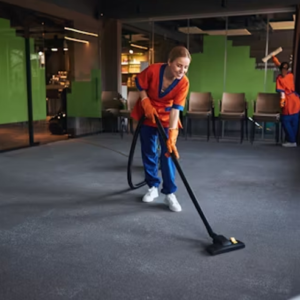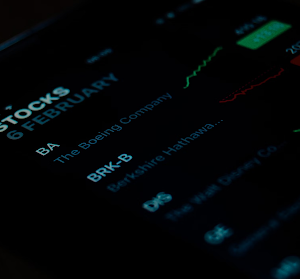Las Vegas, a city renowned for its bustling tourism and vibrant economy, has seen a significant rise in demand for delivery services. The growing need for quick and efficient delivery is fueled by the city’s hospitality sector and an ever-increasing online shopping culture. To meet this demand, delivery companies are embracing technological advancements to streamline operations and enhance service quality.
To meet this demand, delivery companies are embracing technological advancements to streamline operations and enhance service quality. The integration of innovative technologies has become a game-changer in transforming delivery logistics, enabling businesses to meet tight deadlines, manage large volumes, and ensure customer satisfaction. These advancements have made delivery services more scalable and efficient.
Automated Route Optimization for Faster Deliveries
One of the most critical factors in improving delivery services is automated route optimization. Advanced software now calculates the quickest and most efficient routes for drivers, taking into account traffic conditions, road closures, and even weather forecasts. This technology helps delivery companies ensure that parcels are delivered on time, even in the busy streets of Las Vegas, where timing is crucial for maintaining smooth operations.
By optimizing routes, companies can also reduce fuel consumption, lower delivery times, and minimize costs. This eco-friendly approach not only enhances customer satisfaction but also boosts profitability for businesses, making them more competitive in a fast-paced market. Companies can achieve sustainable growth with better resource management while meeting rising delivery demands.
Real-Time Tracking and Delivery Transparency
Transparency in the delivery process has become a key customer expectation. With real-time tracking systems, customers can now follow their parcels from dispatch to doorstep. These systems use GPS technology to provide live updates, offering peace of mind to both businesses and customers alike and ensuring accountability throughout the delivery journey.
For delivery companies, real-time tracking helps monitor delivery driver accidents and optimize fleet performance. Should an issue arise, such as a delay or an accident, the company can react promptly to reroute deliveries or notify customers, keeping disruptions to a minimum. This proactive approach strengthens customer trust and enhances overall service reliability.
Drones: The Future of Delivery in Las Vegas
Drones are emerging as a promising innovation for delivery services, particularly in areas with heavy traffic or hard-to-reach locations. By bypassing congested roads, drones can significantly reduce delivery times, making them an ideal solution for urgent deliveries in a city like Las Vegas. As urban environments become more crowded, drones offer a flexible alternative to traditional methods of transportation.
Although drone delivery is still in its experimental phase, several companies have begun trial runs. In the near future, it is expected that drones will play a vital role in revolutionizing how goods are delivered, cutting down human intervention and further optimizing the process. With advancements in technology and regulatory approvals, drones could soon become a common sight in the skies above cities.
The Role of AI in Fleet Management
Artificial Intelligence (AI) is playing an increasingly prominent role in the logistics and delivery sector. AI-powered systems can predict demand surges, optimize inventory, and even anticipate vehicle maintenance needs. This allows companies to maintain smoother operations and prevent potential delays, improving both efficiency and service quality.
In Las Vegas, where demand for delivery services fluctuates with tourism seasons and events, AI can help businesses allocate resources more efficiently. Partnering with an AI consulting firm enables companies to implement tailored solutions that analyze past trends and real-time data, ensuring they are prepared for peak periods without overextending their workforce or fleet. This strategic use of AI enables businesses to stay agile and meet customer expectations even during the busiest times.
Electric Vehicles for Sustainable Deliveries
As the world moves towards more sustainable practices, delivery companies are increasingly turning to electric vehicles (EVs) to reduce their carbon footprint. EVs are not only environmentally friendly but also cost-effective in the long run, as they require less maintenance and have lower fuel costs. Their adoption represents a key step towards achieving greener logistics solutions.
In Las Vegas, a city aiming to become more eco-conscious, the adoption of EVs in the delivery sector is expected to grow. These vehicles contribute to cleaner air and quieter streets, making them a preferable choice for urban delivery routes. As infrastructure for EV charging stations expands, businesses will find it easier to integrate EVs into their fleets.
Robotics and Automation in Warehousing
Warehousing operations have also benefited greatly from technological advancements, with robotics and automation playing a pivotal role. Robots are now used to move goods around warehouses, pick items, and even package orders. This reduces human error and speeds up the entire process, allowing companies to handle higher volumes of deliveries efficiently while maintaining consistency and precision.
In Las Vegas, where rapid order fulfillment is crucial, automated warehouses are helping businesses meet the rising demand for fast and accurate delivery services. The implementation of robotics ensures that packages are dispatched quickly, improving overall customer satisfaction. As the technology evolves, these automated systems will likely become even more integral to the logistics process.
Cloud-Based Systems for Seamless Coordination
Cloud-based platforms are revolutionizing how delivery companies coordinate their operations. These systems allow different departments, from dispatch to customer service, to access the same information in real time, streamlining the entire delivery process. Delivery drivers can receive updates instantly, ensuring that any last-minute changes or issues are addressed quickly and efficiently.
In a fast-paced city like Las Vegas, where same-day and even same-hour deliveries are becoming the norm, cloud-based technology enables companies to keep up with the demand without sacrificing efficiency—this enhanced communication results in fewer mistakes, better customer service and overall smoother operations.
The Impact of Predictive Analytics on Delivery Efficiency
Predictive analytics is another tool that is reshaping the delivery landscape. By analyzing historical data, predictive systems can forecast demand, identify potential issues in the supply chain, and help companies plan their delivery schedules more effectively. This results in fewer delays and better resource allocation, enhancing overall operational efficiency.
For delivery companies in Las Vegas, predictive analytics offers a competitive edge. It enables businesses to foresee trends and make data-driven decisions, ensuring smoother operations even during high-demand periods, such as holidays or major city events. This proactive approach helps businesses stay ahead of potential disruptions and maintain consistent service levels.




